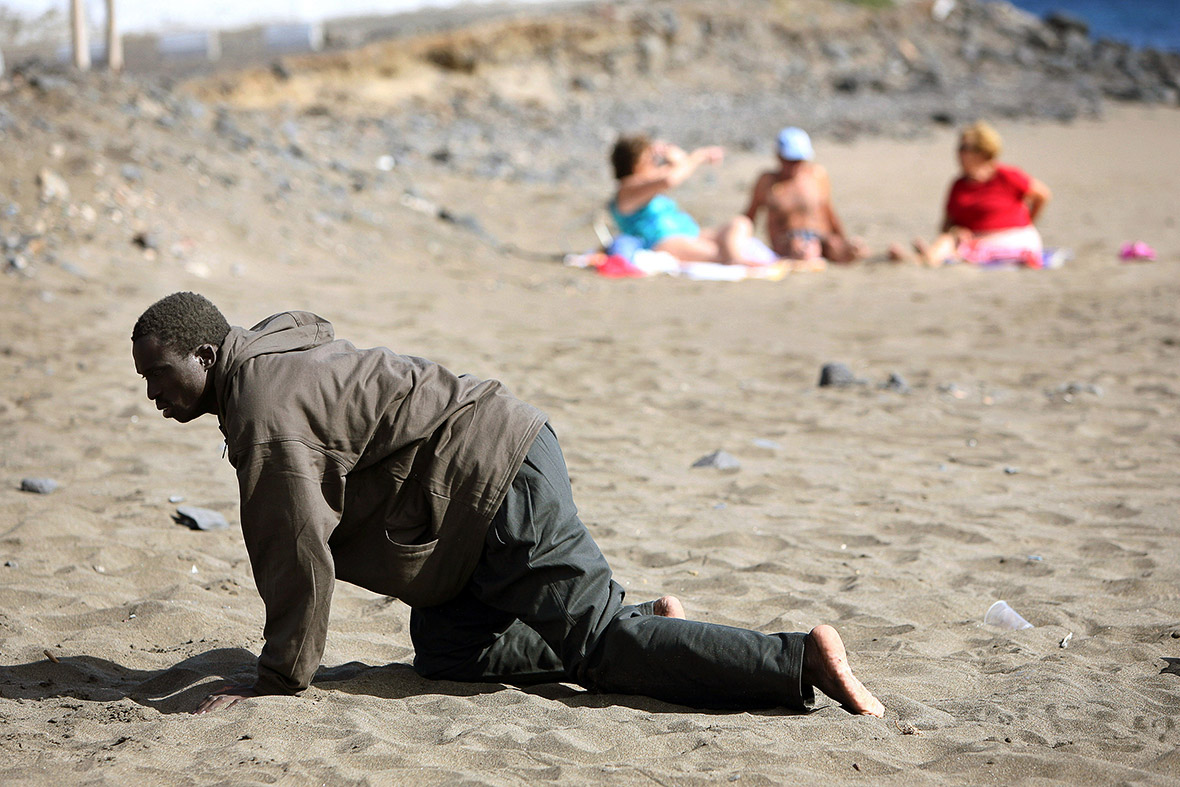Some 150,000 migrants and refugees have so far this year made the perilous journey across the Mediterranean to Europe, and more than 1,900 of them have died, the International Organisation for Migration (IOM) said.
The IOM’s announcement on Friday came just a month after the 100,000-mark was passed, and the United Nations warned the surge in arrivals was creating humanitarian crises that required a “collective and far-reaching” European response.
IOM spokesman Joel Millman said that 1,914 people had died trying to cross the Mediterranean this year.
“That is about double last year’s pace,” he said, lamenting that this past week had been particularly deadly.
Between Thursday night and Friday, the Italian coastguard said it had rescued 823 migrants in eight different operations, and had pulled 12 bodies from the water.
Millman said IOM had heard of at least four other occasions this week when bodies had been found.
So far this year, more than 77,000 people have landed on Greek shores, compared to only 34,442 for all of 2014, according to the UN refugee agency, which on Friday warned the country was facing a “growing humanitarian crisis”.
“On average, 1,000 arrive every day on the Greek islands,” UNHCR spokesman William Spindler told reporters in Geneva, adding that most of them were fleeing from Syria.
“The numbers of people arriving are now so high that despite all efforts, the authorities and local communities can no longer cope,” he warned, insisting an “urgent response from Europe is needed before the situation deteriorates further.”
“Greece urgently needs help and we expect Europe to step forward,” he said.
EU leaders agreed last month to redistribute 40,000 Syrian and Eritrean asylum-seekers already in Europe to help take the load off countries like Greece and Italy, but on a voluntary basis after many member states objected strongly to proposed mandatory quotas.
Felt further afield
The crisis is being felt further afield as well.
Nearly all of the migrants and refugees who arrive in Greece, where the reception capacity is “completely overwhelmed”, move on, trying to reach western and northern Europe by passing through the western Balkans region.
Spindler said that in June, the number of people crossing from Greece into Macedonia and Serbia had soared to an average of 1,000 per day.
“The capacity of these countries to effectively respond to the emergency situation is severely overstretched,” he said, insisting though that “the tightening of borders and building of walls (as Hungary is planning to do) are not the solution.”
“We would expect the European Union to activate its emergency response, because Greece is part of the European Union, and this is happening in Europe. It is happening on the doorstep of Europe,” Spindler said, also demanding more assistance to countries in the “immediate EU neighbourhood” like Macedonia and Serbia. Al Jazeera






 WhatsApp us
WhatsApp us 

